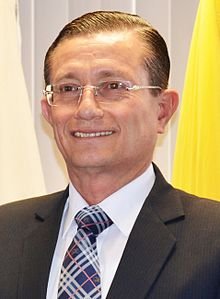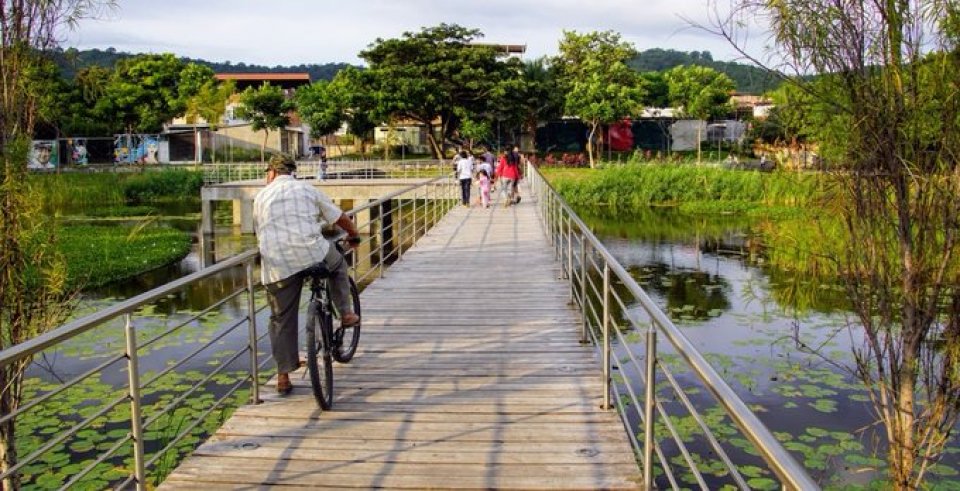Urban Ecosystem Restoration Measures
The Portoviejo River Corridor Project values the river as a natural structuring axis of the city, seeks its ecosystemic and landscape restoration, and takes advantage of its potential to mitigate and adapt to climate change and to act as a unifying and connecting element of urban and natural spaces. This project seeks to address problems of anthropic origin that affect the riparian ecosystem and the human component of the territory.
It is conceived as an integral, multidimensional and multiscale intervention on the river, its banks, ecosystems and adjacent neighborhoods. It includes 7 public initiative parks and approximately 30 km of riverbanks that will be managed and intervened by mixed initiative.
The overall objective of the project is to turn the Portoviejo River into the center of the urban, social, environmental and ecosystemic transformation and restoration of the city, exploiting its potential as a natural element, landscape, identity, public space, connectivity, flood risk reduction and mitigation and adaptation to climate change through the reduction of GHG emissions; as well as promoting the implementation of strategies to recover public access to the river and curb the negative effects of real estate pressure on the main natural resource that exists within the cantonal capital of Portoviejo, under the paradigm of Nature-Based Solutions, citizen participation, equity and economic viability.
A degraded riparian ecosystem has been identified, with a loss of ecological connectivity expressed in 14 fractures along the riverbank, in addition to contamination, sedimentation, and bank erosion.
The project proposes the restoration of the riparian ecosystem through a series of policies, regulatory instruments, and public and citizen-initiated projects to recover the biodiversity, ecological connectivity, landscape value, and ecosystem services of the riverbanks as risk mitigation areas related to erosion, sedimentation, and flooding.
As the natural backbone of the entire valley in which the city is located, the actions on the Portoviejo River seek to address problems such as spatial segregation and the deficit of green spaces. The project focuses on strengthening its landscape qualities, improving the supply of recreation and contemplation areas, promoting sustainable forms of productivity, and improving connectivity between the city's neighborhoods with infrastructure for active mobility.
A total of 2,145 homes have been identified in areas at risk of flooding, a figure that is growing due to climate change, in addition to a generalized disconnection between the daily life of the inhabitants and the river.
The project considers citizens as participants and beneficiaries in turn. It requires citizen participation to guarantee the sustainability of the actions; and proposes the accompaniment and promotion of citizen initiatives related to the restoration of the riverbanks and the conservation of existing species. These actions promote the re-signification of this natural resource and the appropriation of it as a civic, recreational and cultural space for the city.
Commitment
"Transformation basically requires commitment, planning and honesty."

Agustín Casanova Cedeño

